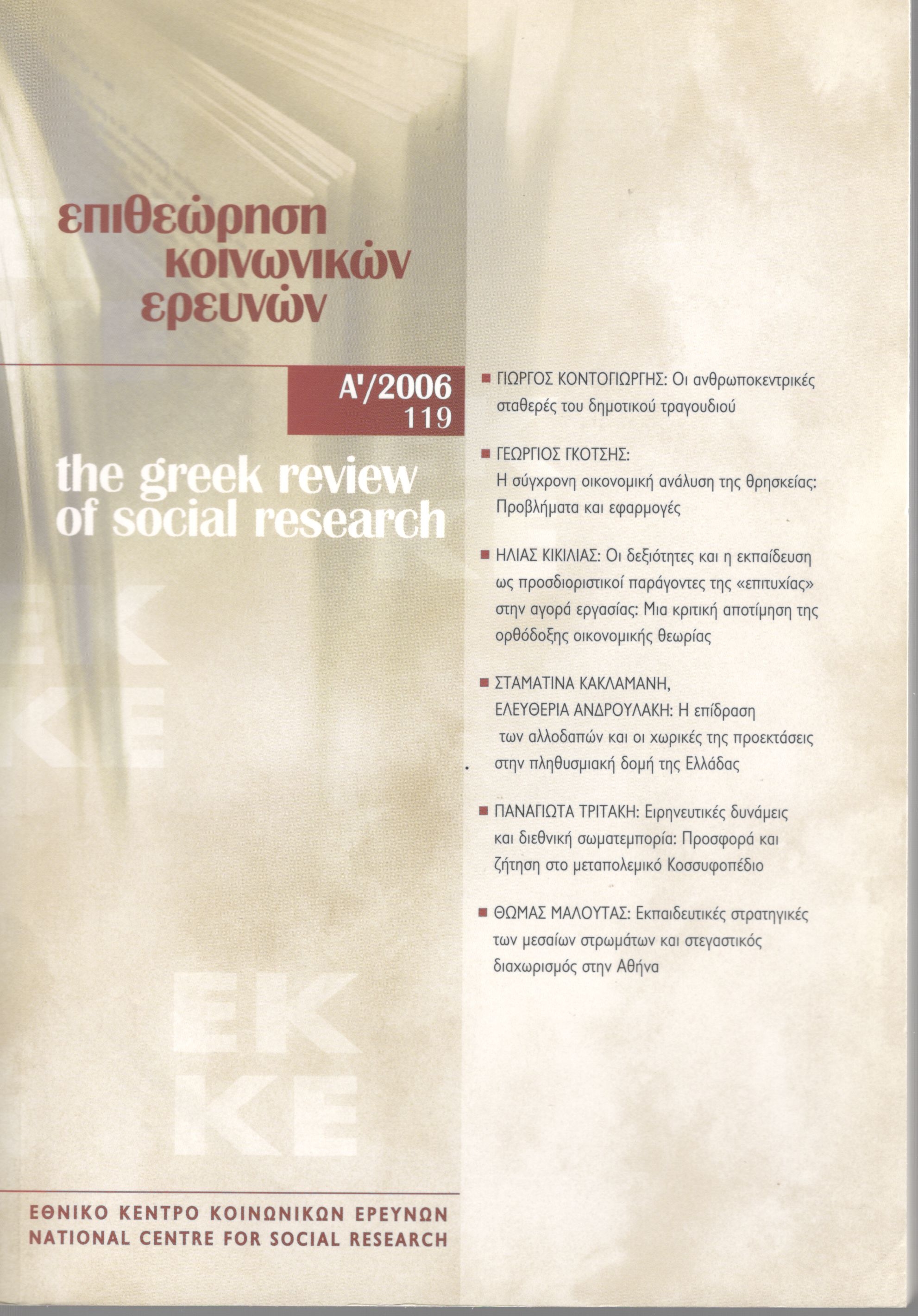Ειρηνευτικές δυνάμεις και διεθνική σωματεμπορία: Προσφορά και ζήτηση στο μεταπολεμικό Κοσσυφοπέδιο
Abstract
Το παρόν κείμενο ερευνά τις πρωταρχικές αιτίες της παράνομης διακίνησης και εμπορίας γυναικών (trafficking) για σεξουαλική εκμετάλλευση στο Κοσσυφοπέδιο μετά από την εγκατάσταση των Ειρηνευτικών Δυνάμεων τον Ιούνιο του 1999. Όπως στη Βοσνία, έτσι και στο Κοσσυφοπέδιο, η διαπλοκή των ειρηνευτών στη διεθνική σωματεμπορία εντάσσεται στο γενικότερο πλαίσιο προσφοράς και ζήτησης το οποίο διαμορφώνεται με βάση διάφορες πολιτικές και κοινωνικοοικονομικές τοπικές ιδιαιτερότητες καθώς επίσης και με άλλα διαδικαστικά και δομικά ζητήματα των τμημάτων ειρηνευτικών αποστολών, των διεθνών οργανισμών και των κρατών μελών τους. Η εργασία θα εξετάσει τις αιτίες εξάπλωσης του φαινομένου στο Κοσσυφοπέδιο, τις πιθανές αδυναμίες του ειρηνευτικού συστήματος και, τέλος, θα προτείνει μέτρα πρόληψης για την μείωση της συμμετοχής των στρατιωτών στο trafficking κατά την διάρκεια ειρηνευτικών αποστολών.
Article Details
- How to Cite
-
Τριτάκη Π. (2016). Ειρηνευτικές δυνάμεις και διεθνική σωματεμπορία: Προσφορά και ζήτηση στο μεταπολεμικό Κοσσυφοπέδιο. The Greek Review of Social Research, 119, 147–174. https://doi.org/10.12681/grsr.9535
- Issue
- 2006: 119 A'
- Section
- Articles

This work is licensed under a Creative Commons Attribution-NonCommercial 4.0 International License.
Authors who publish with this journal agree to the following terms:
- Authors retain copyright and grant the journal right of first publication with the work simultaneously licensed under a Creative Commons Attribution Non-Commercial License that allows others to share the work with an acknowledgement of the work's authorship and initial publication in this journal.
- Authors are able to enter into separate, additional contractual arrangements for the non-exclusive distribution of the journal's published version of the work (e.g. post it to an institutional repository or publish it in a book), with an acknowledgement of its initial publication in this journal.
- Authors are permitted and encouraged to post their work online (preferably in institutional repositories or on their website) prior to and during the submission process, as it can lead to productive exchanges, as well as earlier and greater citation of published work (See The Effect of Open Access).



